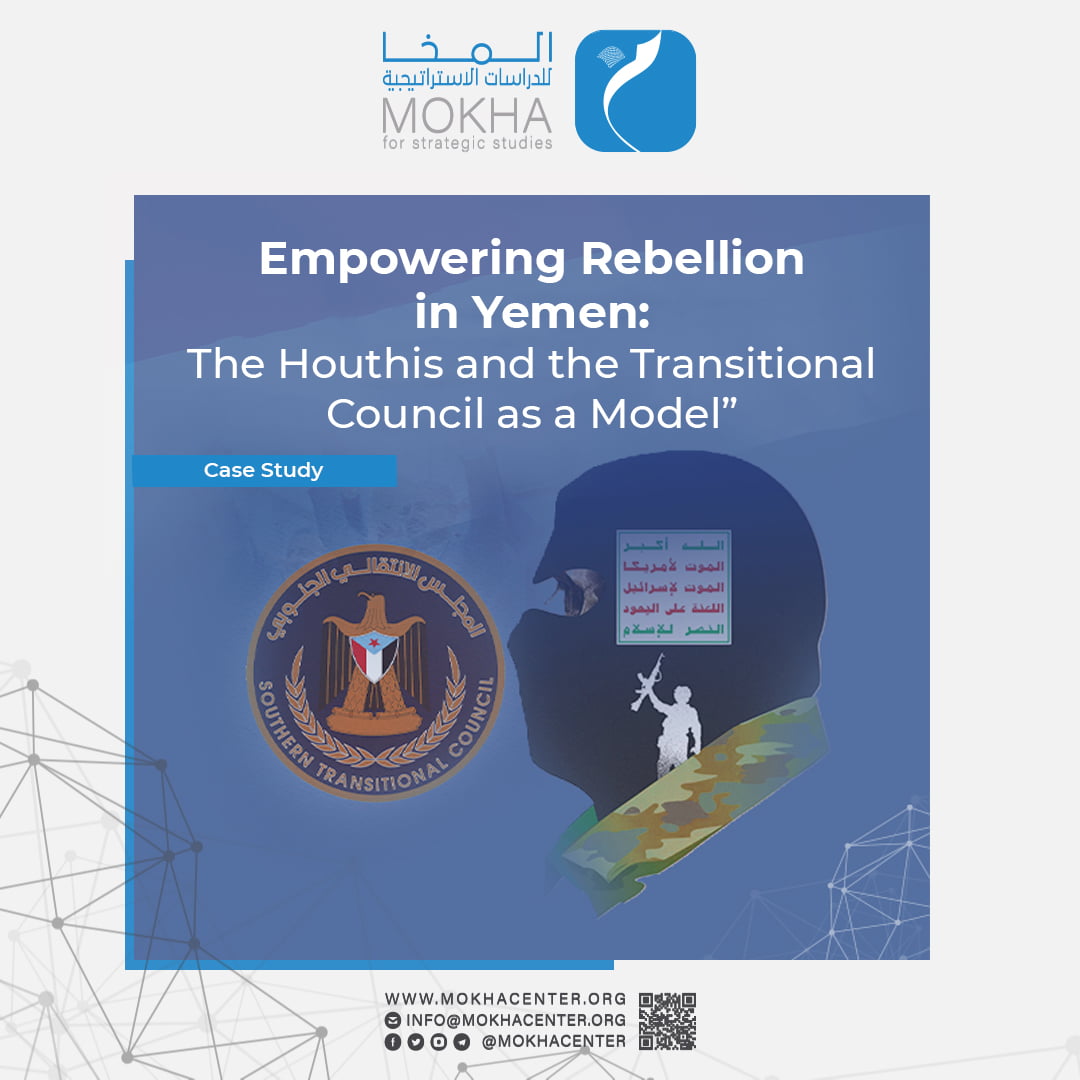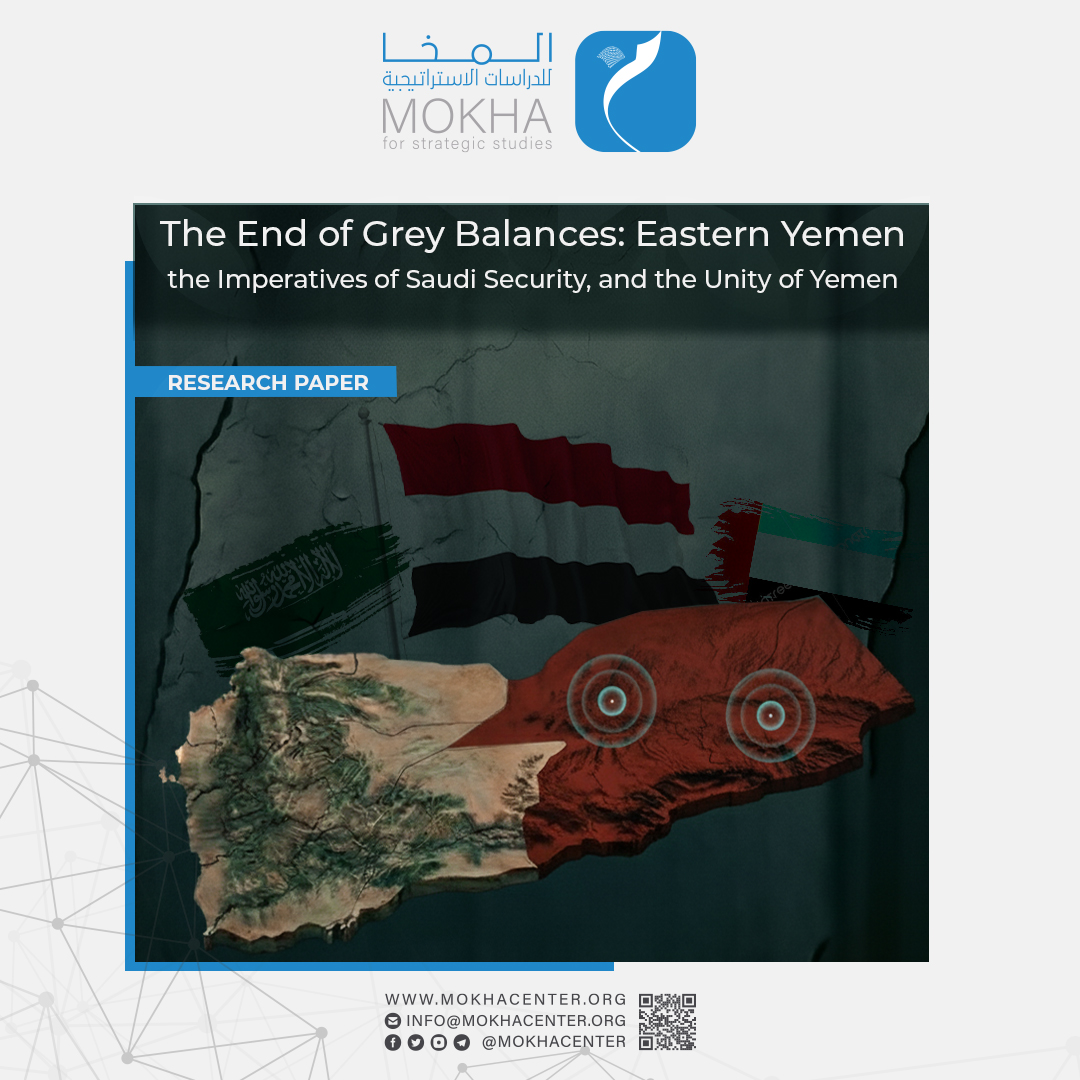“Empowering Rebellion in Yemen: The Houthis and the Transitional Council as a Model”

abstract:
In the present Yemeni context, the control of the territory is primarily in the hands of armed groups. The Houthi faction, which had previously rebelled against the state and engaged in seven armed conflicts, achieved dominance after the seizure of Sana’a on September 21, 2014. They subsequently orchestrated a coup against the legitimate government, taking control of state institutions and imposing their authority over the northern and western governorates that they had previously subjugated through military means. Likewise, the Southern Transitional Council managed to overthrow the legitimate government in Aden on August 10, 2019. This was accomplished by rebelling against the state, forming armed forces independent of the existing army and security structures, and engaging in armed conflicts across Aden, Lahj, and Abyan governorates.
Rather than the state regaining its authority and sovereignty over Yemeni territory, the legitimate government experienced burnout. The presence of these armed groups grew more powerful, and they were afforded enough time to enhance their military capabilities, amass economic resources, and expand their influence. In pursuit of the banner of peace and conflict resolution, these groups compelled the state to make repeated concessions. Gradually, these armed groups transitioned into a de facto governing authority while remaining a substantial threat to the political system, national sovereignty, and the unity of the Yemeni state.
This paper addresses the process of empowering and legitimizing armed groups that rebel against the state and seize power in Yemen. It briefly traces the most pivotal historical events and milestones, providing an objective analysis of the positions and policies that contributed to this transformation, and explaining the contextual factors that facilitated this shift. The objective is to gain insight into the origins of this phenomenon, the underlying reasons for its emergence, and the factors that sustain it.
The paper’s findings indicate that external actors, and to a lesser extent, internal factors, played a pivotal role in shaping this transformation, through its progression from small, secondary and marginal powers to large, major and central powers, monopolizing force, violence, authority, and resources.
Pathways for the future
The Houthi group and the Southern Transitional Council, both formed outside constitutional and legal frameworks, engaged in armed rebellion against the state, posing threats to social, regional, and international security and committing war crimes. Despite their origins, these groups gained political legitimacy and authority within the state structure, facilitated by agreements such as the “Peace and Partnership Agreement” in 2014 and the “Riyadh Agreement” in 2019.
These agreements, signed under international sponsorship, provided the groups with cover and legitimacy but were selectively honored, allowing them to expand their territorial control and maintain military forces. With the Houthis and the Transitional Council now dominating large parts of Yemen, there is talk of a new political settlement without involving key Yemeni authorities.
This path toward negotiation, driven by regional and international understandings, raises concerns as it sidelines the Yemeni leadership. It imposes a new reality using armed force, potentially granting quasi-legal immunity to parties that committed violations. Neglecting transitional justice could lead to an explosive scenario jeopardizing the unity and entity of the Yemeni state.
Saudi discussions with the Houthi group in Riyadh, excluding representatives of legitimacy, have sparked concerns. The Parliament emphasized the importance of a political solution based on established references—the Gulf Initiative, National Dialogue Conference outcomes, and UN Security Council resolutions (especially Resolution 2216). Any solutions deviating from these references may not be accepted officially or popularly. The Parliament called for unity among political forces to explore all options, ranging from peace to restoring the state through all possible means, emphasizing the need for sincere intentions to achieve lasting peace and restore the Yemeni state.

